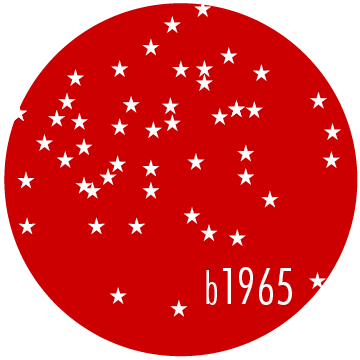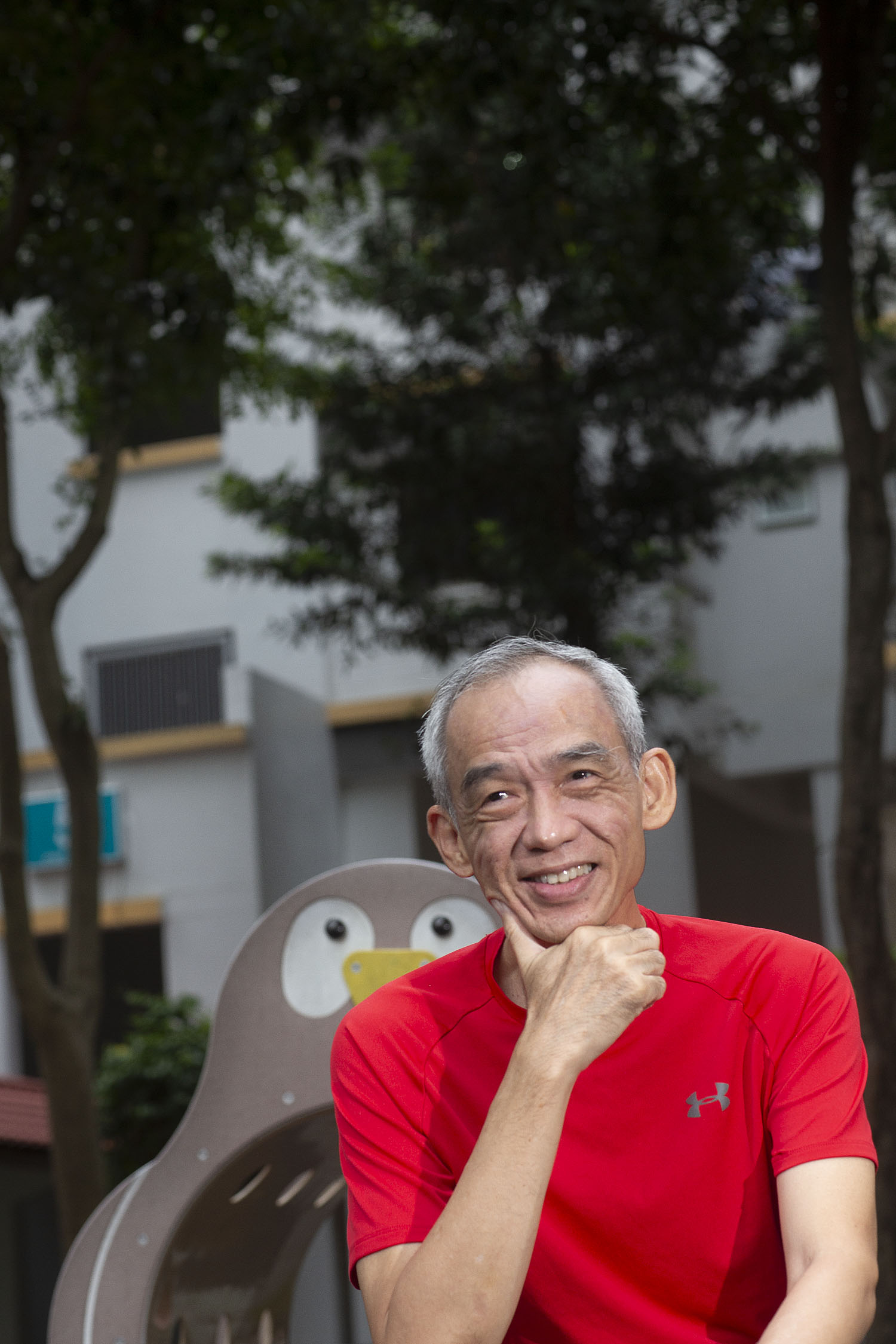ANG Teck Hua grew up in the Old Airport Road area where his family of 11 lived in a two-room rental flat. His parents were illegal hawkers and he endured unkind words and pitiful stares from neighbours and strangers. He quickly realised that education would enable him to break the poverty cycle. He graduated from the polytechnic and won scholarships to do his undergraduate studies and master’s degree. He went back to school at the age of 56, again on a scholarship, to work on a doctorate in applied psychology.
Take us through your childhood, about your family.
I grew up in the Old Airport Road area, Pine Close to be exact.
My first six years of formal education were spent at Guillemard East Primary School. Despite the name, the school was actually in Geylang Lorong 20. Back then, Geylang was known as a hotbed of gang and illegal drug activities.
I witnessed a lot of gang fights. My uncle who lived with us was a gangster who was close to the head of a gang and I noticed that a lot of people respected him.
Many gangsters hung out at our flat and when I was young, I aspired to be a gangster.
My grandma ran a gambling den at our flat. Often, I acted as the errand boy for the gamblers and helped them buy coffee or cigarettes.
Wait, so how many people live in the small flat?
My maternal grandma, my parents, my uncle, my six siblings plus me.
We were all packed into one room.
Very often, my mom and dad slept on foldable beds along the walkway outside our flat.
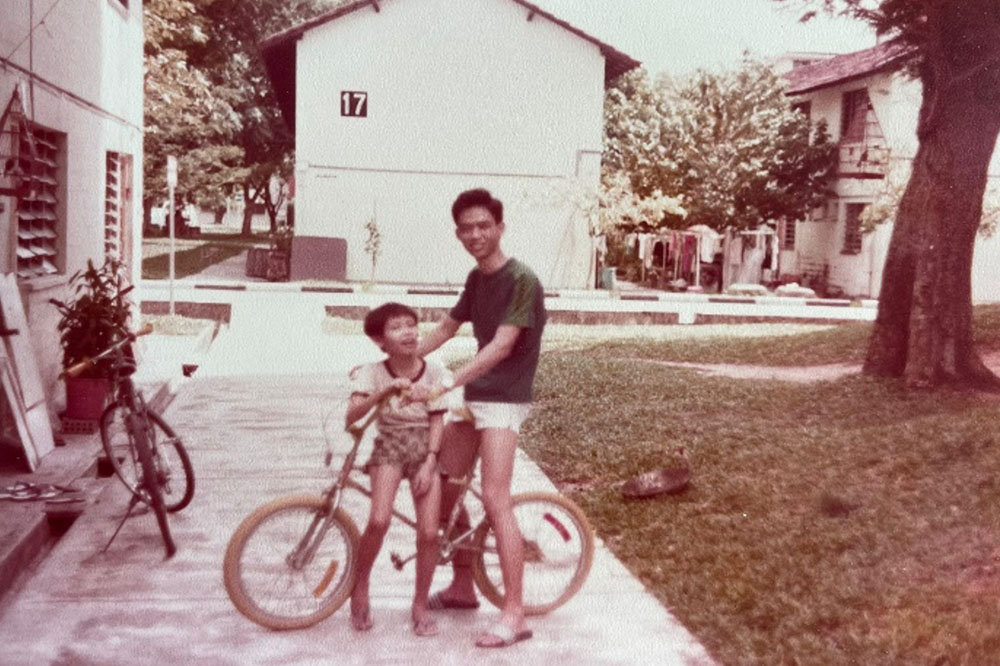
So your parents had seven children?
Yes, I am the third in the family. I have two older brothers, two younger brothers and two younger sisters.
When I was in secondary three, I lost one of my younger brothers in a car accident.
"Many gangsters hung out at our flat and when I was young, I aspired to be a gangster."
Were your parents too busy making a living to worry about you?
My dad was a trishaw rider and did not earn enough to feed the family so he had to take on odd jobs. My mom was a washerwoman. At some point, my parents were also illegal hawkers.
They had no time to worry about us. They had to worry about the more immediate problem of making ends meet.
They did not make enough money and had to borrow?
My parents were always running away and hiding from loan sharks. People looked down on us.
There were nights when our house would be very ‘romantic’ because we had candlelight.
Because there was no money to pay for utilities?
We had no money to pay for electricity and we studied by candlelight.
There were times when my parents sent me to the provision shop to buy rice because they were too shy to go.
Why?
Because they would give me only 20 or 30 cents to buy a few kati of rice.
kati or catty is a traditional unit of mass used across East and Southeast Asia, notably for weighing food and other groceries. One kati is about 600g.
So hunger was something you were familiar with?
You know the Chinese saying, 有饭吃饭,有粥吃粥. Somehow there would always be food.
Often it was just porridge with soya sauce. Nothing else.
Despite the difficult economic situation, your family was loving?
I am very grateful to my parents.
Our life wasn’t fantastic. We didn’t eat well, but my parents did their best.
They were resourceful enough to somehow help make ends meet.
I am also very grateful to my eldest brother who gave up his secondary school education to help support the family.
"At a very young age, I was an illegal hawker selling drinks and fruits outside a school and in the market."
Did you have an inferiority complex?
Of course. I knew that we were at the bottom rung of society.
I felt inferior, shy and ashamed.
At a very young age, I was an illegal hawker selling drinks and fruits outside a school and in the market.
When I bumped into my friends, teachers and classmates, I felt very bad. I knew it was illegal and people gave me pitiful looks.
I really hated that.
But you must have also met people who were kind to you?
I was very blessed to have good teachers and nurturing mentors in my life.
In primary six, when the PSLE (Primary School Leaving Examination) results and school postings were announced, I was sent to a school I did not opt for. I had never heard of the school and I didn’t even know where the school was.
Mr Wee, my primary six teacher, drove me there.
"I was very blessed to have good teachers and nurturing mentors in my life."
Who else?
In secondary one, I met a teacher called Miss Fan.
She led a Bible study group that met weekly.
I remember observing them and Michael, a senior who was two years older, shared the gospel.
He was a prefect and a librarian, so I respected him.
I found a sense of peace. I accepted Christ immediately.
In secondary two, I met a Mr Koh, who taught us science and maths, English, literature and PE (physical education).
When the ‘O’ levels results were released, he drew a big sad face with teardrops on the blackboard.
He asked rhetorically, “Do you know how many people passed ‘O’ levels in this school?”
He then answered, “It is one of the lowest in the whole of Singapore. This school is Sungei Road (common phrase used to describe something of lousy quality) standard.”
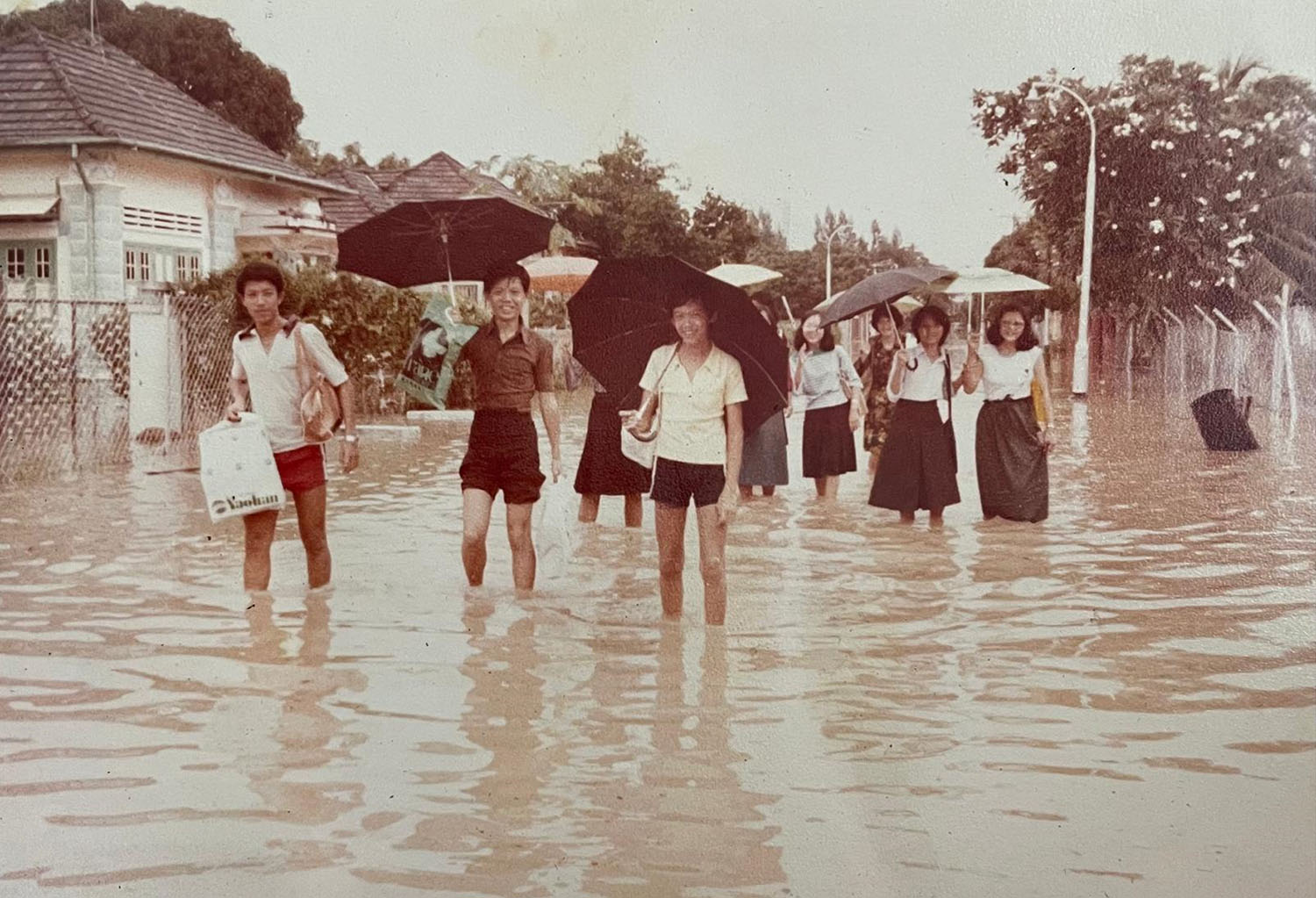
He encouraged you and your friends to transfer to another school?
I don’t think he used the exact words ‘please get out’ but somehow we got the message — “You are better off elsewhere. Find a better learning environment if you can.”
You left in the end?
I wasn’t really pushing hard for it but by providence, yes.
It was in part thanks to my friend whose cousin was at Woodsville Secondary, a new school with possible openings for transfer students.
A group of us met the principal and most of us were accepted.
And was the new school different?
It was a new school with a very visionary principal who knew what a good holistic education should be.
How was she different?
Mrs Carmee Lim was originally from RGS (Raffles Girls School). Although she was our principal, she was also our relief teacher for physical science when our teacher went on leave.
She taught physics so engagingly and beautifully that at one stage, I wanted to be a scientist.
I remember she used physics to explain the beautiful northern lights and to convey the wonder of this physical phenomena.
Her chemistry lessons were so fun. It was as if we were all Sherlock Holmes trying to solve mysteries by carrying out tests to identify unknown substances.
She was an inspiring teacher who brought a potentially boring subject to life and making it relevant to our life.
Overall, we had very good teachers.
"The inspiring acts of my teachers are etched in my mind and they have inspired me to join the education sector."
Do you think any of these teachers played a role in your decision to become a teacher?
I thought Mr Koh was a very inspiring teacher who really wanted to make a difference in our lives.
While Miss Fan was the one who gave me my spiritual compass, Mr Koh inspired me to want to inspire others.
Mr Wee showed me unconditional love and picked me up when I was very down and lost.
There was another primary school teacher, Miss Wong, who fed me milk ice-cream because I was too skinny. She knew that I was from a humble background.
The inspiring acts of my teachers are etched in my mind and they have inspired me to join the education sector.
How did you do for your ‘O’ levels?
I did well enough to qualify for junior college and the polytechnic.
Poly was the most practical choice then because I wanted to start work as soon as possible.
I studied electrical & electronic engineering at Ngee Ann Polytechnic.
My average grades were Bs and Cs until in the final year.
I did especially well in year three and scored a distinction for digital computer technology, a course that dealt mostly with microprocessors.
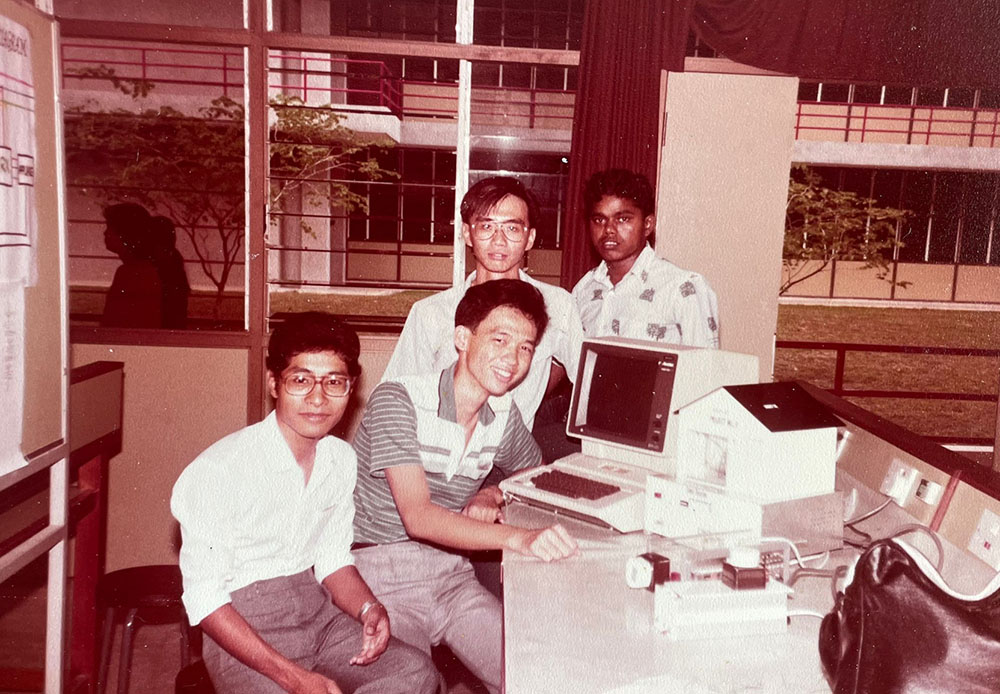
And you ended up joining Apple?
When I joined Apple, I was already very familiar with their products. My final year project was home automation using an Apple compatible computer.
After a year, I was sent to the United States for training. In the third year, I was posted to the Netherlands.
I was fortunate to have very nurturing colleagues and managers who recognised my strengths and took very good care of me.
I did very well at Apple. According to my manager, I was one of the fastest to be promoted from technician to technical specialist, all within two and a half years.
But as a diploma holder, I could not become an engineer.
I recognised that there was a ceiling for me. I thought that I should further my studies and pursue my dream to become a teacher.
Have you always viewed education as a way to move up?
I had very good experiences with teachers and I had received their many kind acts which I will always remember.
I know how one kind act can change a person’s life.
More importantly, I see education as an opportunity to break the poverty cycle.
So you quit Apple?
I did in 1991 and by then, I was already married.
The job at Apple was great and exciting but deep inside, I kept hearing the calling to become a teacher.
In the end, I took a study loan from DBS and went to study computing at Monash University in Melbourne.
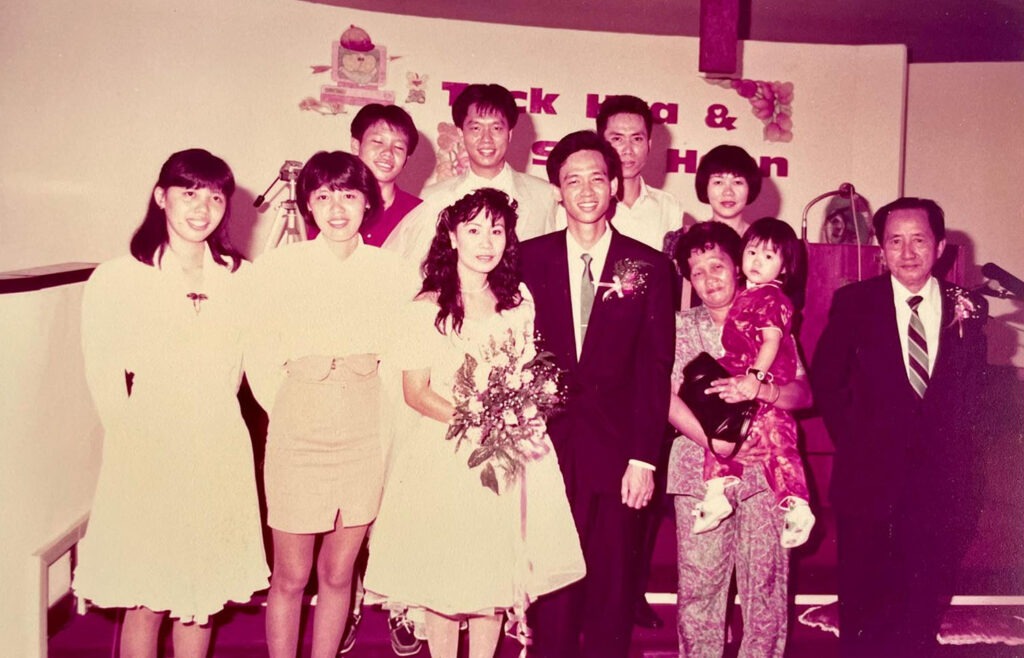
"The job at Apple was great and exciting but deep inside, I kept hearing the calling to become a teacher."
How was Monash and how long were you there?
Two years.
I did well in Monash. I was among the top three students in my year. I scored distinctions in every subject.
In my final year, I wrote to the administrators at Temasek Polytechnic (TP), which was just starting up.
They flew me out to Perth for an interview and offered me a scholarship for the last year of my programme. In exchange, I had to serve a four-year bond.
The scholarship was so good that I was able to pay off my study loan and still had enough money for my remaining time in Melbourne.
Was your wife with you in Monash?
She was, and her company, an Australian law firm with a Singapore branch, found her a place in their Melbourne office.
How did you meet her?
Siok Hoon was my primary school classmate and we met again years later at a class reunion.
We started dating when I was working at Apple.
"I figured that since I wanted to be an educator, I should get a master’s in education."
While you were at Monash, you became parents?
It was strategic because we had paid for the family insurance.
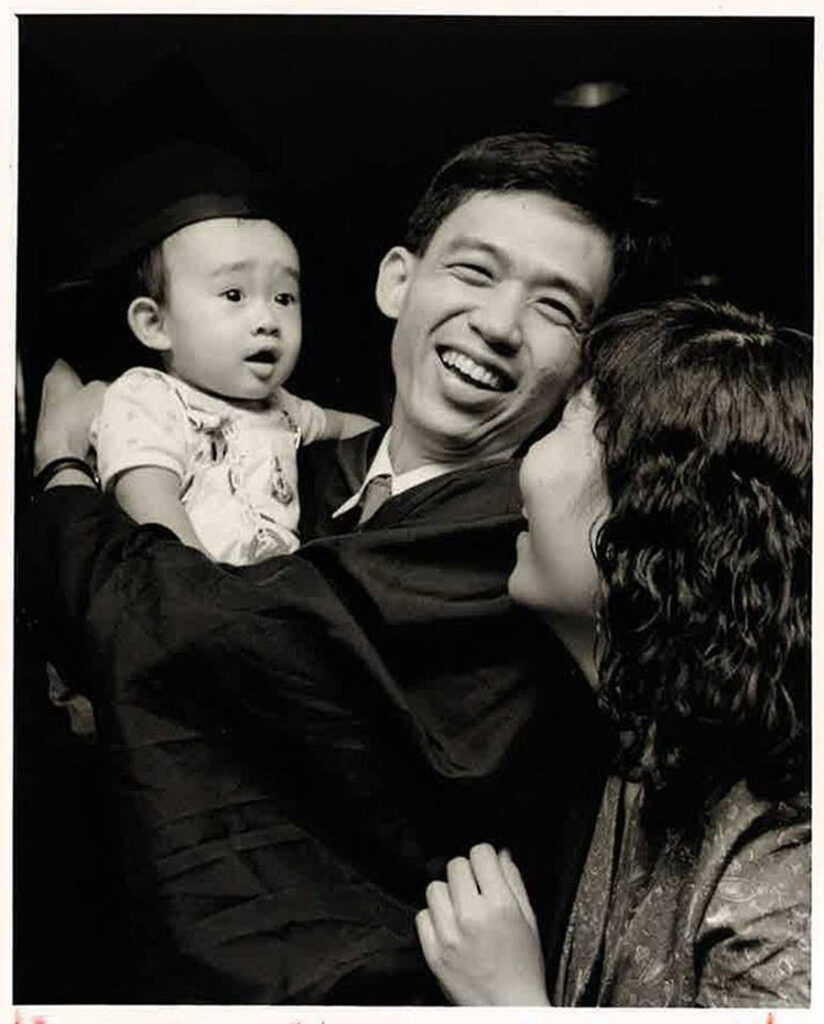
That is so typical Singaporean.
(laugh) Yes, we wanted to maximise the usage.
I finished all the classes I needed within one and a half years. The remaining six months were just for the final year project and so I could enjoy fatherhood.
You signed a bond at a very young age. No regrets and no temptation to stay back in Australia?
A lot of people asked why we didn’t migrate.
I think most people we care about were in Singapore.
What were you teaching at Temasek Poly?
I was teaching modules related to Computer Engineering and because it was a new school, I was very involved in designing the course modules.
And then you got another scholarship to do your master’s? How long were you at TP before you left?
When I finished serving my first bond of four years, I was given another scholarship, in 1998.
I figured that since I wanted to be an educator, I should get a master’s in education.
This time, for one year of scholarship, I was bonded for five years. But it was a really good package – it included my full salary when I was away.
We like Australia because it is near Singapore. We had lived in Melbourne so it was time to try a different city.
When I went to the University of Sydney, we were already parents of two kids.
Hang on, how many children do you have in total?
Three, two boys and a girl.
Abel is the first born. He is a PhD candidate in philosophy at the University of California, Riverside.
Grace, the second one, is a secondary school teacher.
Azel, the third one, is a final year psychology student at SMU (Singapore Management University).
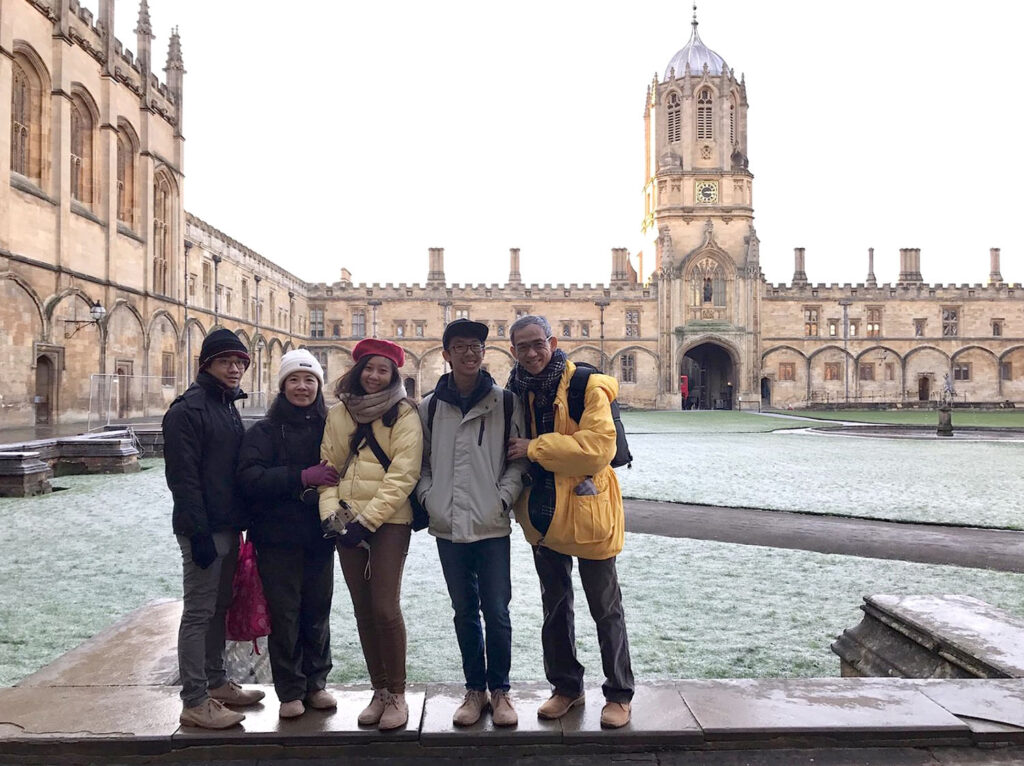
Would you say that your wife was very important in your life journey?
I am very grateful to her. She has always been very supportive.
We are very family-oriented so she embarked on a new career in early childhood education. In a way we were also preparing for ourselves to be parents.
Siok Hoon remained a homemaker for more than 20 years. Besides the children, she also looked after my parents and one of them had dementia.
From time to time, she did relief and part-time teaching.
The children have a very stable home environment thanks to her. I was working very hard and long hours.
She never complains.
If you interview her, she will probably say she leads a most ordinary life.
Given your humble background, I assume your have always been thrifty and careful about money. What’s one ‘luxury’ you allow yourself to have?
Travelling with my loved ones to strengthen bond and co-create sweet memories.
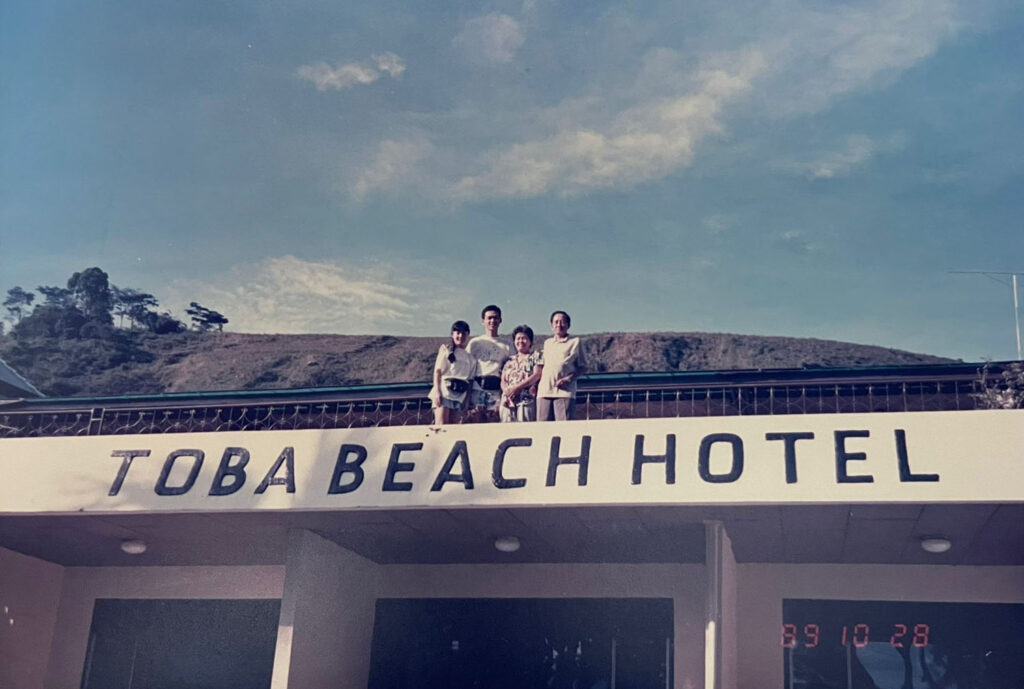
You fell seriously ill in your late 40s. Did that change anything in your life?
In 2013, I was diagnosed with late-stage stomach cancer and was told that I might have only three months to live.
Suddenly, my priorities became very clear. Workplace responsibilities were secondary to other more important things in life, such as family and friends.
Among many things, I wanted to ensure that my family would be well taken care of when I’m no longer around.
When my younger brother died in a car accident, I learned that life is unpredictable. My illness reinforced and reminded me of that.
In a strange way, I was thankful that my illness gave me the opportunity to pause and prepare for the day when I won’t be around.
I learned to cherish every little thing.
A simple morning walk at the park with my wife, hand-in-hand, brought a great sense of joy and gratitude.
Fearing that my cancer would recur if I went back to my hectic work routine, my family encouraged me to slow down after my official sick leave was over.
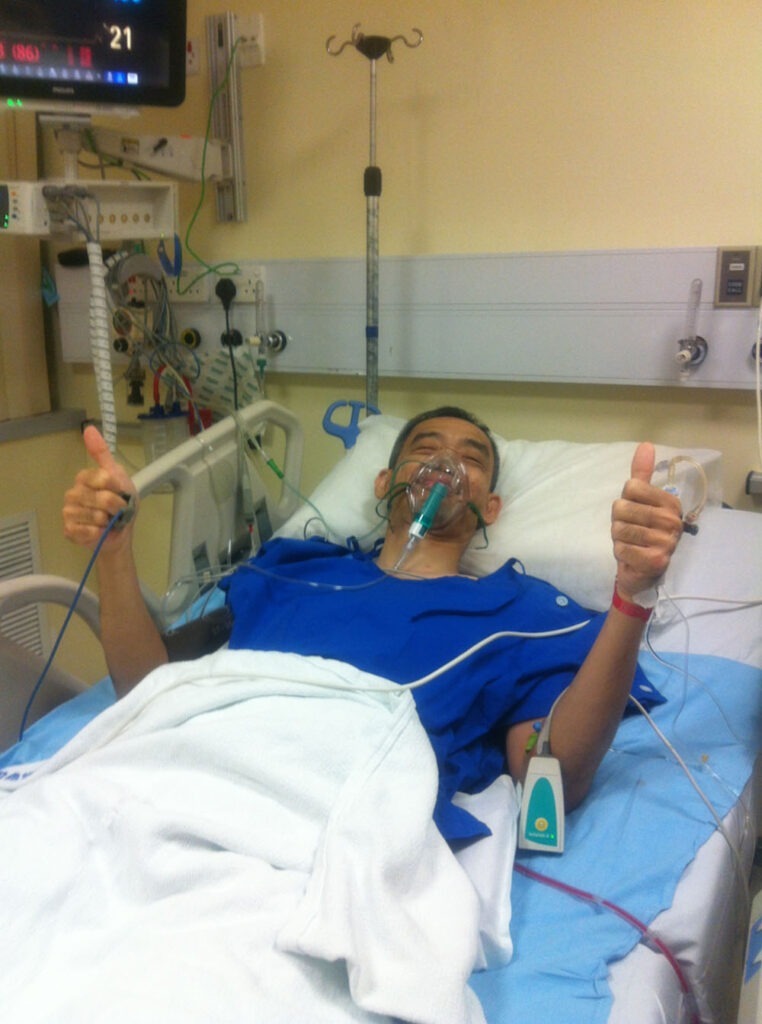
"In a strange way, I was thankful that my illness gave me the opportunity to pause and prepare for the day when I won’t be around. "
You slowed down at work but started on your PhD program at an age when most people would be starting to think about retirement.
The illness made me think about what I wanted to do for the remainder of my life.
I revisited my dream of pursuing a doctorate.
After my daughter finished her university studies and started working, and in the year I turned 55, I told my boss that I would like to take a break from work to pursue my PhD in psychology full-time, to better equip myself for the final lap of my life journey.
It helps that I enjoy reading and doing research very much. So going back to full-time studies is less daunting.
Will you ever retire?
Mark Twain said, “Find a job you enjoy doing, and you will never have to work a day in your life.”
For most of the past three decades, I was fortunate to have been given many meaningful job opportunities in the education sector.
In my last job posting at the National Institute of Early Childhood Development (NIEC), I worked with early childhood educators to give every child in Singapore a good start in life.
As long as I can continue to leverage my experience, strengths and creativity, to contribute in meaningful ways to uplift our society, I will continue to work for many more years to come.
Hopefully, I can apply lessons learnt from my PhD studies, to help uplift our emotional well-being and mental resilience, which can see us through tough times.
"As long as I can continue to leverage my experience, strengths and creativity, to contribute in meaningful ways to uplift our society, I will continue to work for many more years to come."
If you have to compare your life to the story of Singapore, what will your narrative be?
My life can be summed up by the title of the book by our late founding father Mr Lee Kuan Yew — From Third World to First: The Singapore Story: 1965 – 2000.
Like Singapore, my life began in 1965 in a small rental flat, where my parents and their seven children were cramped in one bedroom. In 2000, my mother, my wife, our three children and I moved to a spacious executive apartment, financed with our CPF.
Thanks to bursaries and scholarships, I’ve upgraded myself continually, which helped my family break the poverty cycle.
I am constantly reminded that the cards we were dealt with at birth do not dictate our destiny. As individuals and as a nation, we can forge our own future.
